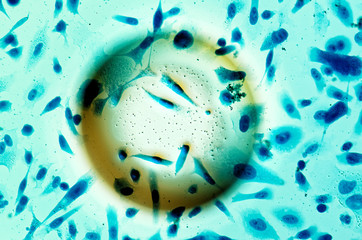Prostate cancer: What You Should Know

This
is the type of cancer that affects the prostate gland. It's a small
walnut-shaped gland in men that produces the seminal fluid that
nourishes and transports sperm, the gland that produces some of the
fluid in semen and plays a role in urine control in men.
When
the condition is found early, and if it is located only in the prostate
gland, treatment of prostate cancer can be more successful. If the
cancer spreads to other areas of the body, treatment may become more
difficult.
Symptoms
the
fact is there are no visible symptoms at the early stages of prostate
cancer. Meanwhile the possible symptoms that do appear on the later
stages includes:
- Blood is found in the semen
- blood in the urine
- Frequent urination
- Erectile dysfunction
- Pain or stiffness in the lower back, hips, or upper thighs
- Difficulty commencing and maintaining urination
- leg weakness
Causes of prostate cancer
Various factors can increase or reduce the chance of mutations, thereby resulting to cancer.
Diet:
Eating high-fat foods and red meats, and not eating enough vegetables,
fruits, and fibre increases your risk of developing prostate cancer.

Age: Increase in age, especially from 65, comes with greater risk.
Weight, physical inactivity: Obesity and inactive men have higher rates of prostate cancer.
Smoking: People who smoke have a higher risk of developing prostate cancer and a poorer prognosis after diagnosis.
Race: For reasons not yet determined, black men carry a greater risk of prostate cancer than do men of other races. In black men, prostate cancer is also more likely to be aggressive or advanced.
Family history: If men in your family have had prostate cancer, your risk may be increased. Also, if you have a family history of genes that increase the risk of breast cancer (BRCA1 or BRCA2) or a very strong family history of breast cancer, your risk of prostate cancer may be higher.
Medication: Some research has suggested that non-steroidal anti-inflammatory drug (NSAID) use may reduce the risk of prostate cancer. Others have linked NSAID use with a higher risk of death from the disease. This is a controversial area, and results have not been confirmed.
Prevention
healthy diet:
eating more of vegetable, whole grain and some variety of fruits. Fruit
and vegetable contains chemical compounds like antioxidant that can
help fight against cancer. At the other hand fatty food should be
avoided.
Exercise: Exercise
improves your overall health, helps you maintain your weight and
improves your mood. There is some evidence that men who don't exercise
have higher PSA levels, while men who exercise may have a lower risk of
prostate cancer.
Medication:
Some research has suggested that non-steroidal anti-inflammatory drug
(NSAID) use may reduce the risk of prostate cancer. Others have linked
NSAID use with a higher risk of death from the disease. This is a controversial area, and results have not been confirmed.
Over weight: It is often believed that obesity is
linked to the development of prostate cancer, but the American Cancer
Society maintains that there is no clear link. But keeping our body in
good shape should not be neg-elated.
Diagnosing prostate cancer
DRE or PSA test are used to detects an abnormalities that can result to a prostate cancer. if an abnormality is found during this test, your doctor may recommend further tests to determine whether you have prostate cancer, such as:
- AN ultrasound scan providing imaging of the affected region using a probe that emits sounds.
- A biopsy, or the removal of 12 to 14 small pieces of tissue from several areas of the prostate for examination under a microscope.
- a PCA3 test examining the urine for the PCA3 gene only found in prostate cancer cells

No comments:
Post a Comment